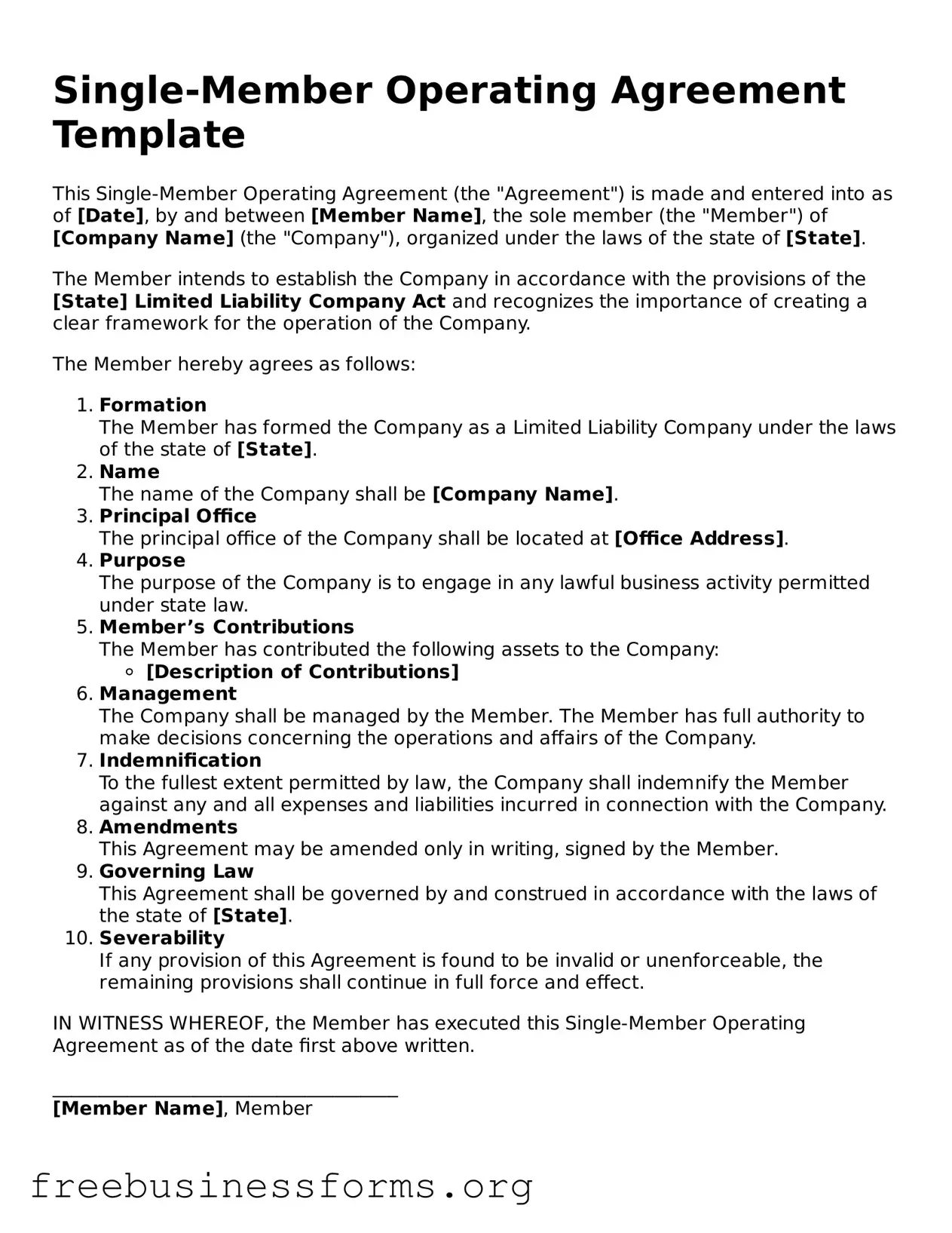Official Single-Member Operating Agreement Form
A Single-Member Operating Agreement is a legal document that outlines the management and operational procedures of a limited liability company (LLC) owned by a single individual. This agreement serves as a crucial framework, detailing the rights and responsibilities of the owner while protecting personal assets. Understanding this form is essential for anyone looking to establish and operate a single-member LLC effectively.
Open Form Here

Official Single-Member Operating Agreement Form
Open Form Here

Open Form Here
or
↓ PDF File
Quickly complete this form online
Complete your Single-Member Operating Agreement online quickly — edit, save, download.